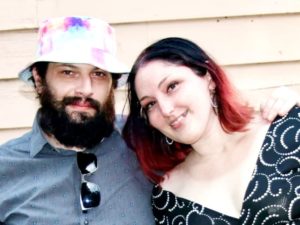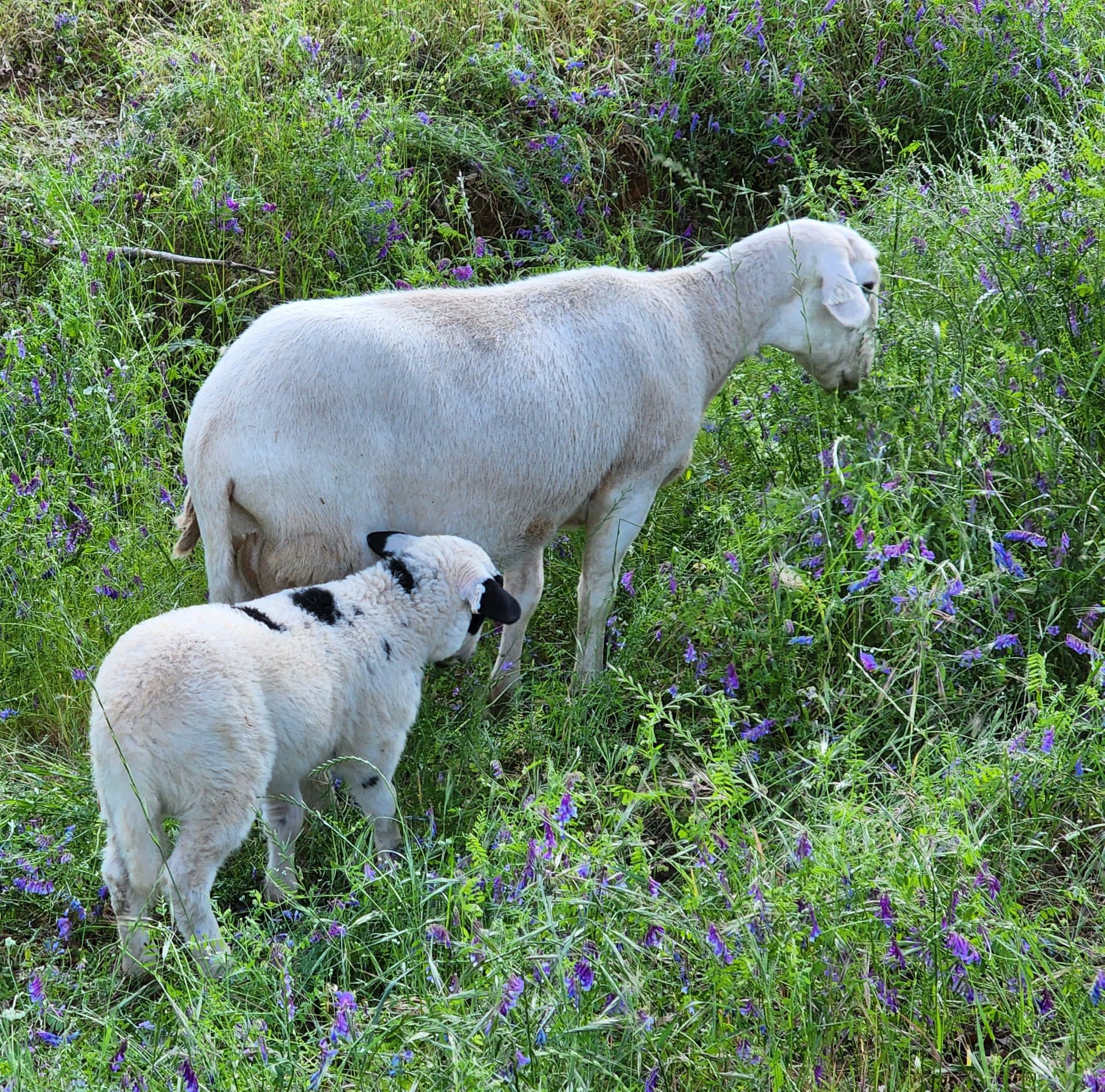
In 2017, Brandon started the farm by investing in a colony of bees. He was interested in eusocial insects, and how the bees worked together in a greater ecosystem. Brandon also wanted to have a hands- on experience creating better- for- you, natural, and sustainable foods and products. He got his start with honey and wax products harvested from his own bees.
Brandon later learned that chickens will eat the waste products produced by bees. He moved to a farm with more acres so that he could expand on ecological, and sustainable farming systems.
Shortly after his move, he met me (Sarah). Among other reasons, Brandon and I bonded over our love of animals. We found that we were both passionate about eating healthy, but still delicious food. With Brandon’s background in science, and my early experiences in Future Farmer’s of America, we set out to create farming practices that would be beneficial for us and our greater community. And the rest is History!

Many of the breeds we offer are from heritage lines. Heritage breeds are those traditional breeds raised by our forefathers. They were well- rounded and hearty. They were disease- resistant and thrived on pasture. This is unlike the commercial breeds today, which are selected for rapid growth or feed efficiency. We have sampled and investigated the different breeds in our journey to create better farm practices. We have found that while heritage breeds take longer to grow, the wait is well worth it. The end result is a rich, flavorful product with a good ratio of fat to muscle. Commercial breeds and store bought meat just can't compare! While heritage breeds tend to do better on pasture, we find that all livestock made better meat and products when they were raised on pasture. It is the combination of a variety diet, sun, exercise, and lower stress that comes with living naturally. Through investigating, reading, and experimenting, we have found products from the same breed/ animal to be exceptionally tasty after pasture raising. There are also studies suggesting that pasture raised meats are higher quality and healthier (Van Vliet S., Provenza FD and Kronberg SL 2021)
We partner with local businesses to recycle the organic material deemed not- for public. This include produce nearing expiration date, or not perfectly shaped. This also includes by- products such as spent- grain from breweries. These materials would otherwise end up in landfills. Instead, we use the fresher material to supplement our animals diet. Other materials are used for compost for our fields.
We also recycle organic material such as Christmas trees! Our animals love the pine needles. Once picked clean, we also recycle the wood for the fireplace.
In pasture raising our animals, we keep the flammable vegetation in our area down. We also hope to expand this initiative. In the near future we aim to use our livestock to support fire abetment in the larger community.
Our goal is to share products, food, and knowledge to support a happier, healthier community.

About Us: we are a small family owned farm. We strive to provide quality food and products that break the mold for farming and grocery. We want to bring you products that are better for you and the environment.